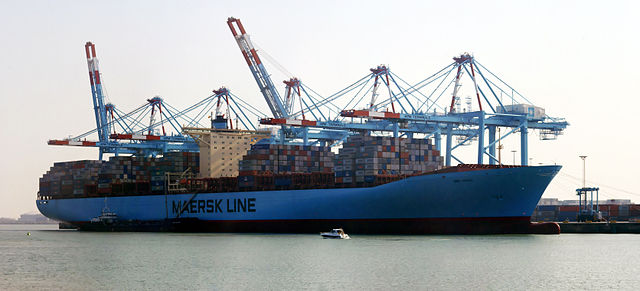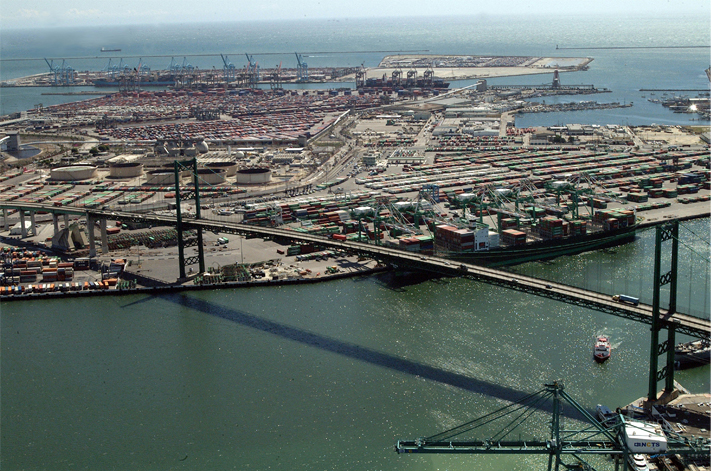Posts Tagged Trade Promotion Authority
Neither Obamacare Nor IslamoBomb
Posted by Joshua Sharf in Uncategorized on June 12th, 2015
Opponents  of granting Obama Trade Promotion Authority for the Trans-Pacific Partnership have made comparisons to two other situations, Obamacare and the Iranian Nuclear Talks. Per Obamacare, they argue, the agreement would be approved at the last minute, with minimal understanding of what is in it, and with minimal debate. Per the Iranian Nuclear Talks, opponents want to know, if we trust the administration to conduct these talks, and only require a majority vote, then why don’t we trust them to treat with Iran?
of granting Obama Trade Promotion Authority for the Trans-Pacific Partnership have made comparisons to two other situations, Obamacare and the Iranian Nuclear Talks. Per Obamacare, they argue, the agreement would be approved at the last minute, with minimal understanding of what is in it, and with minimal debate. Per the Iranian Nuclear Talks, opponents want to know, if we trust the administration to conduct these talks, and only require a majority vote, then why don’t we trust them to treat with Iran?
Each, I think, is based on a misunderstanding both of the powers under debate, and the consequences of the agreements being reached, as well as the route we took to get here.
The comparison with Obamacare is more easily dismissed. Unfortunately, Rep. Paul Ryan of Wisconsin, whom I like a great deal, fueled this argument with language that was similar to, or could be portrayed as similar to, Nancy Pelosi’s famous declaration about Obamacare that, “We have to pass it to find out what’s in it.” In fact, the TPA’s design militates against a repeat of that debacle.
Here’s the process, as described by Scott Lincicome in The Federalist:
Finally, unlike the oft-analogized Obamacare legislation, the actual text of any final TPP deal will be required by law to be publicly available (online) for months—yes,months—before Congress votes on it. As you can see from the table below (source), under TPA the president must make the entire text of any trade agreement, including TPP, available to the public for 60 days before he can even sign it.Once it’s signed, Congress will have weeks, maybe months, to scour the deal, hold “mock markups” in various committees, and suggest changes to the agreement before the president sends Congress legislation implementing the FTA for a final vote. Also, within 105 days of the FTA’s signing, the U.S. International Trade Commission must issue a report on the deal’s economic impact—again prior those bills being submitted to Congress. And once the bills finally are submitted, Congress will then have up to 90 legislative days (which is like five months in normal human days) to review the bills and hold final votes.
One point that he doesn’t mention is that the TPA’s insistence on an up-or-down vote actually works strongly against the Obamacare comparison. There’s no question that the take-it-or-leave-it approach on the final vote puts some pressure on to approve. But it also prevents the kind of last-minute horse-trading that left Obamacare a mess of barely-comprehended internal contraditctions. Since amendments wouldn’t be allowed, there’s no opportunity for changes in one party of the proposed law to have unexpected consequences, or be in outright conflict with, other parts.
The comparison with the Iran Nuclear Talks is less-easily disposed of. It, too, is going to be subject to a majority vote, after having been negotiated in secret. But the differences are vast. The Iran Talks are essentially about the conditions under which we will remove the economic sanctions on Iran. In the first place, the Administration realized it held the high cards with Congress as soon as it understood that sanctions, as currently constituted, could simply be serially waived by lying about Iran’s compliance and intentions. Any changes to that law would require a majority vote, but then would actually require a 2/3 vote to override a veto.
Moreover, the consequences of getting the Iran deal wrong would be swift, irreversible, and catastrophic. Those of us who don’t trust the administration on Iran – which means most of the country – don’t trust them because there’s basically no way of stopping them from doing that damage, and Obama has shown every evidence of bad faith in pursuit of a deal. While the text of the TPP-in-process is secret, the administration has made virtually no effort to keep the proceedings secret, leaking capitulation after capitulation in the weird belief that doing so will somehow soften opposition. The Iran deal-in-process is known to be a bad one, and in any event, much of what the administration wants to do could be done without Congressional approval prior to Corker-Menendez.
The jury on TPP is still out, and the process doesn’t require any “trust” of the administration or the final product. Nor does it put the Congress in a position of voting on a piece of legislation that still has red-pen markup on it. Depending on the provisions, one could certainly oppose TPP when it comes out without being protectionist. But opposing the TPA on the basis of either of these analogies doesn’t hold water.
China Has a PLAN For TPP
Posted by Joshua Sharf in Business, China, Economics on June 11th, 2015
 This week, it’s all about the Trade Promotion Authority being sought by the administration in pursuit of the Trans Pacific Partnership, a massive and massively complex free trade agreement being negotiated among 12 nations, including Japan, Mexico, Canada, and the US, along with a variety of Pacific nations seeking freer trade with the US.
This week, it’s all about the Trade Promotion Authority being sought by the administration in pursuit of the Trans Pacific Partnership, a massive and massively complex free trade agreement being negotiated among 12 nations, including Japan, Mexico, Canada, and the US, along with a variety of Pacific nations seeking freer trade with the US.
Free trade hasn’t been this hot a topic since NAFTA and the “giant sucking sound,” the phrase for which Ross Perot is probably best remembered.
Much of the objection has centered around the alleged secrecy of TPA. Of course, there is exactly zero secrecy around the Trade Promotion Authority, something which has routinely been granted Presidents since Roosevelt. It’s merely the authority to seek an up-or-down vote on the package once agreement is reached.
The TPP itself is still secret, and it needs to be. While it’s amusing to see libertarians like Sen. Rand Paul argue for aggressively Wilsonian ideas like open negotiations, such an approach would almost certainly never lead to an actual trade agreement – there are simply too many competing interests to balance for such talks to be held in public. If and when an agreement is reached, there will be plenty of time to examine it, and if, on balance, our interests are not served, Congress will get a chance to vote it down, and send our negotiators back for another try.
One element that isn’t being discussed is the silent role that China is playing in these negotiations, and the stake that it has in their failure.
China is becoming dangerously overconfident in its assertion of sovereignty over the international waters of the South China Sea. It’s developing strategic weapons designed to prevent our navy from operating effectively anywhere in the Pacific. And it will likely try to declare an Air Defense Identification Zone (ADIZ) over the South China Sea sometime this summer.
The US has an unstated, but increasingly clear, policy of pulling together bilateral and multilateral relationships in opposition to China’s hegemonic ambitions. This includes even Vietnam, a country with which the US has not always enjoyed the closest relationship. (How amusing would it be for the US Navy to obtain rights at Cam Ranh Bay?)
The TPP not only serves the purpose of strengthening economic ties, it also begins to establish the habit of working together with these countries, building trust, and improving on general diplomatic and working relationships. Successfully pursuing TPP would help persuade these countries that the US was serious about doing business in Asia. This would likely be true even if the agreement itself were to be rejected by Congress and sent back for renegotiation.
China is not included in the talks. Naturally, it would like to see them fail, and then, citing their failure (especially on a procedural vote) as evidence of the US’s unreliability, walk in with its own proposed agreement. Countries already nervous about Chinese encroachment might be inclined to listen, turn away from us out of fear, frustration, and disgust, and then cut a deal with the closer, more committed power.
The role that Chinese intelligence plays in this should not be underestimated. Their new friends, the Russians, and their subsidiary, Wikileaks, probably published what are purported to be sensitive portions of the TPP specifically in order to ramp up opposition sow discontent in the US in advance of the vote. Moreover, the catastrophic security breach at OPM, which now includes overseas contacts of US citizens, could be used to intimidate those operators in Asian countries who might not want the relationship with China to be exclusive.
One hesitates to freight any particular negotiations with too much importance, but it’s hard to see how walking away from the talks at this point could be anything but bad.



